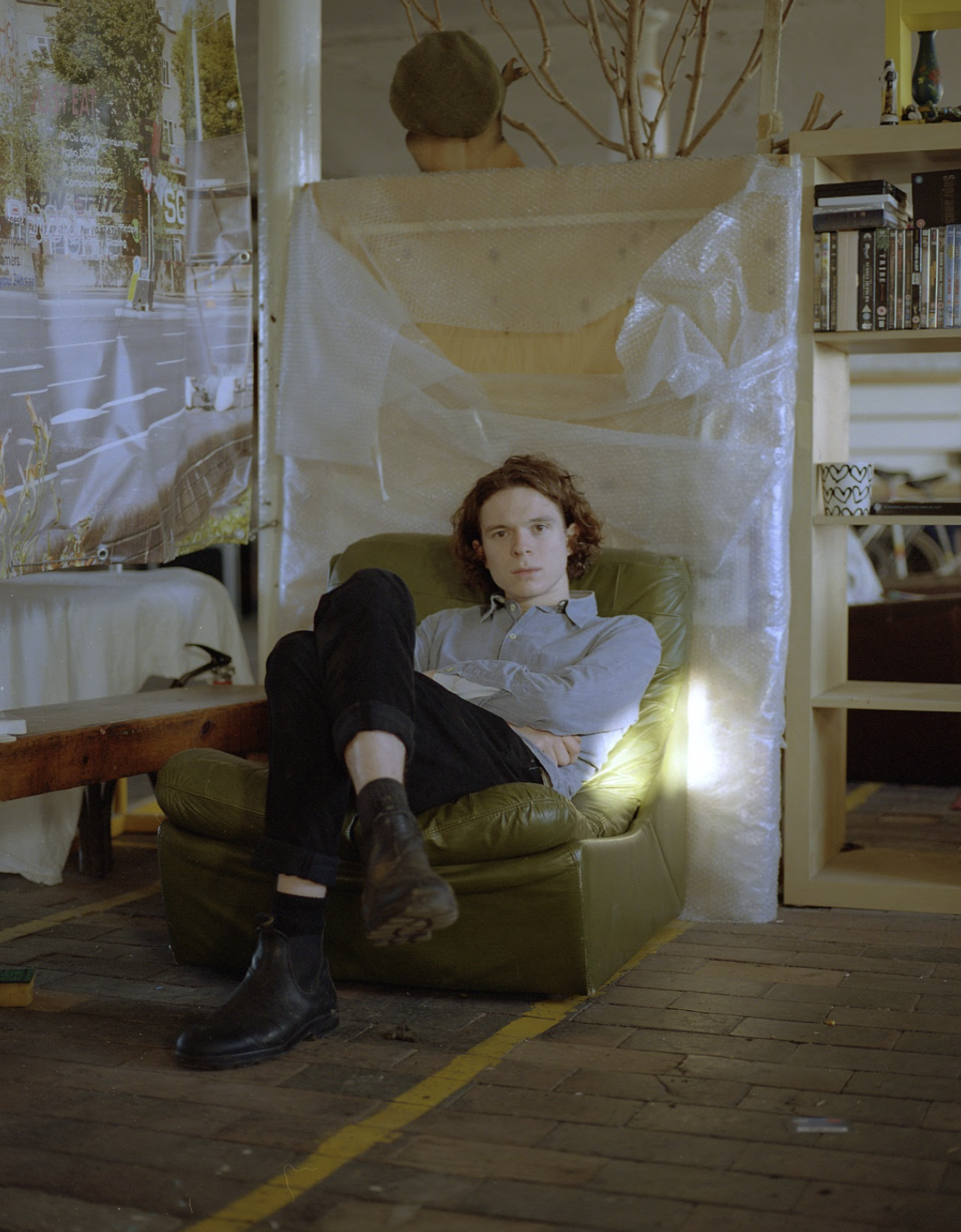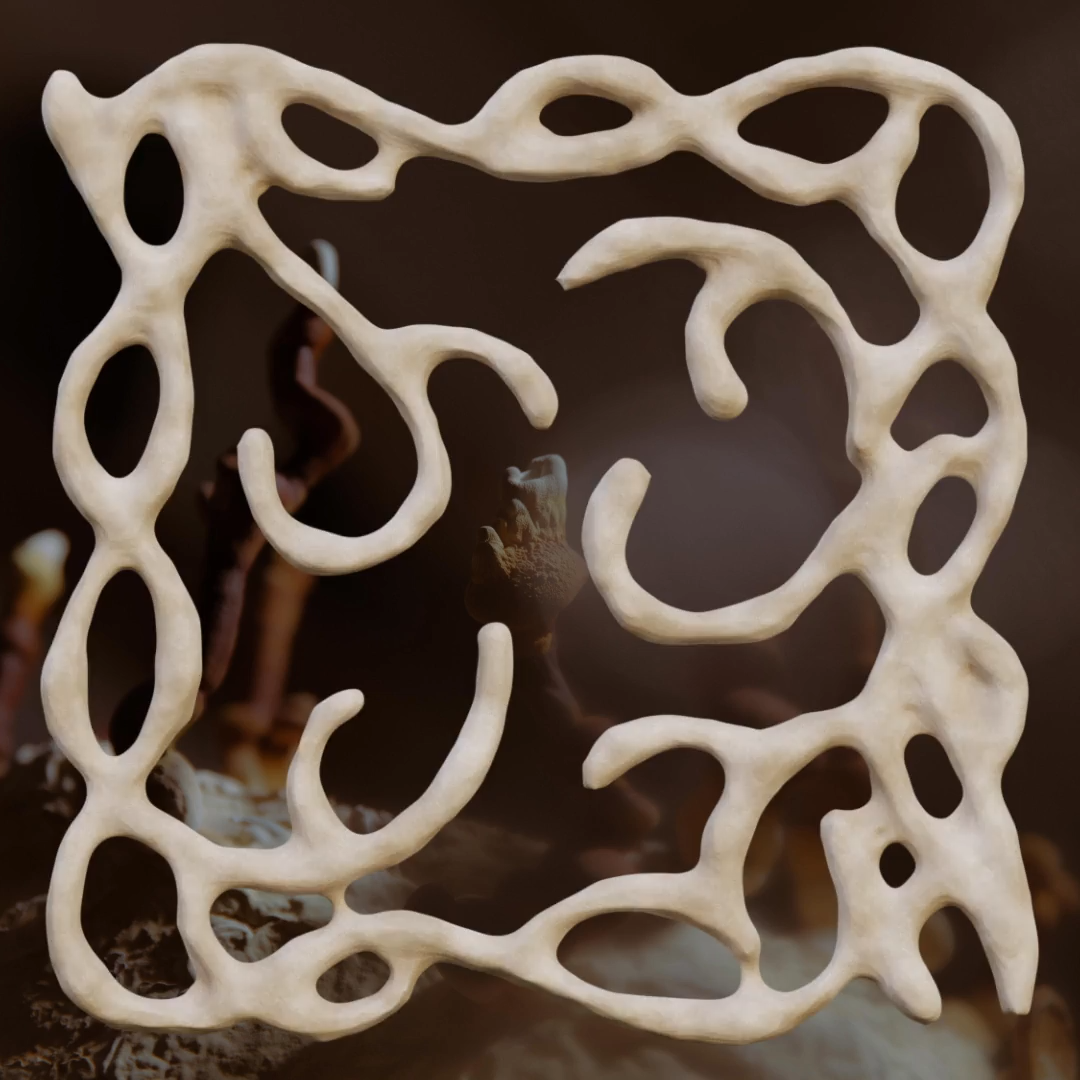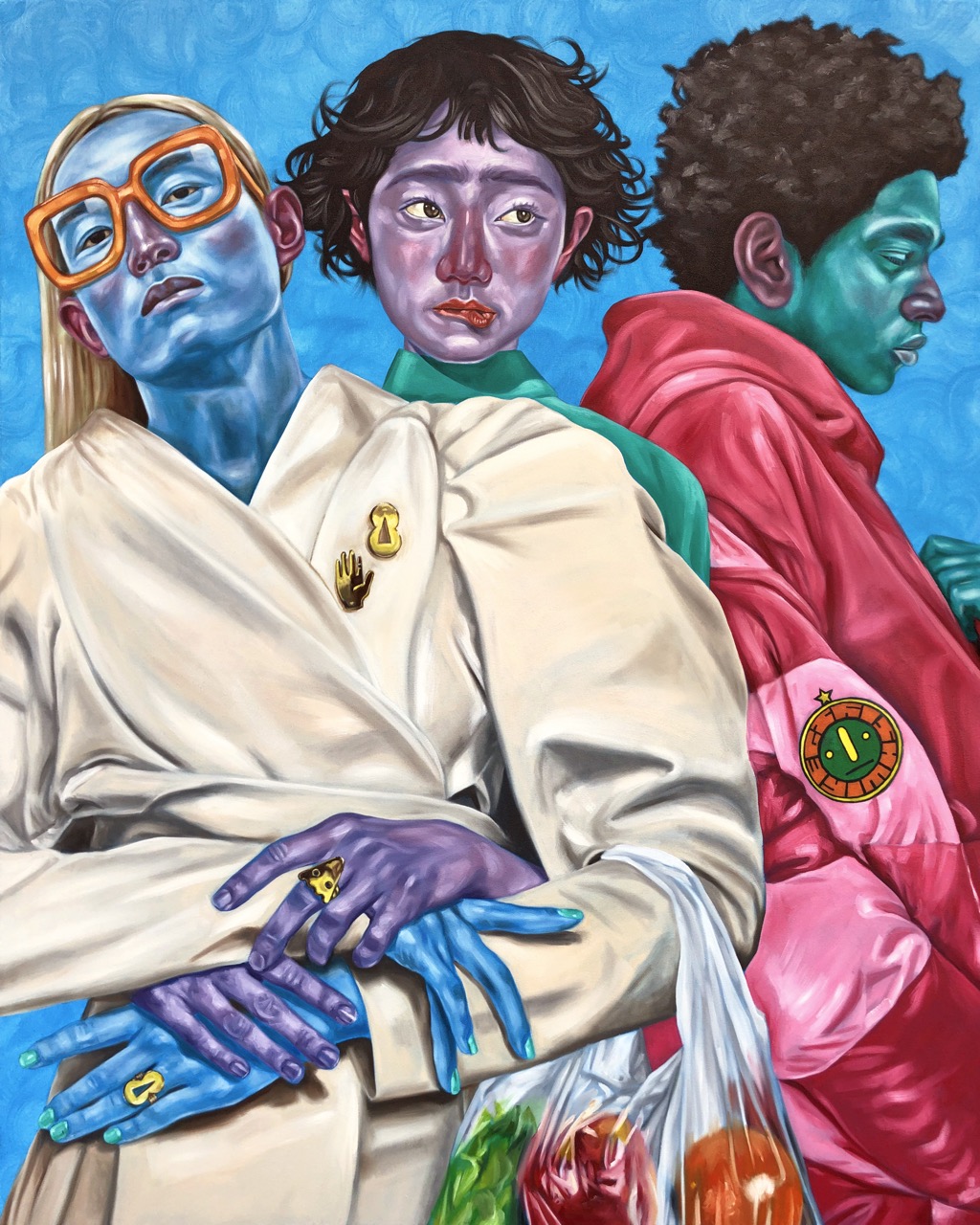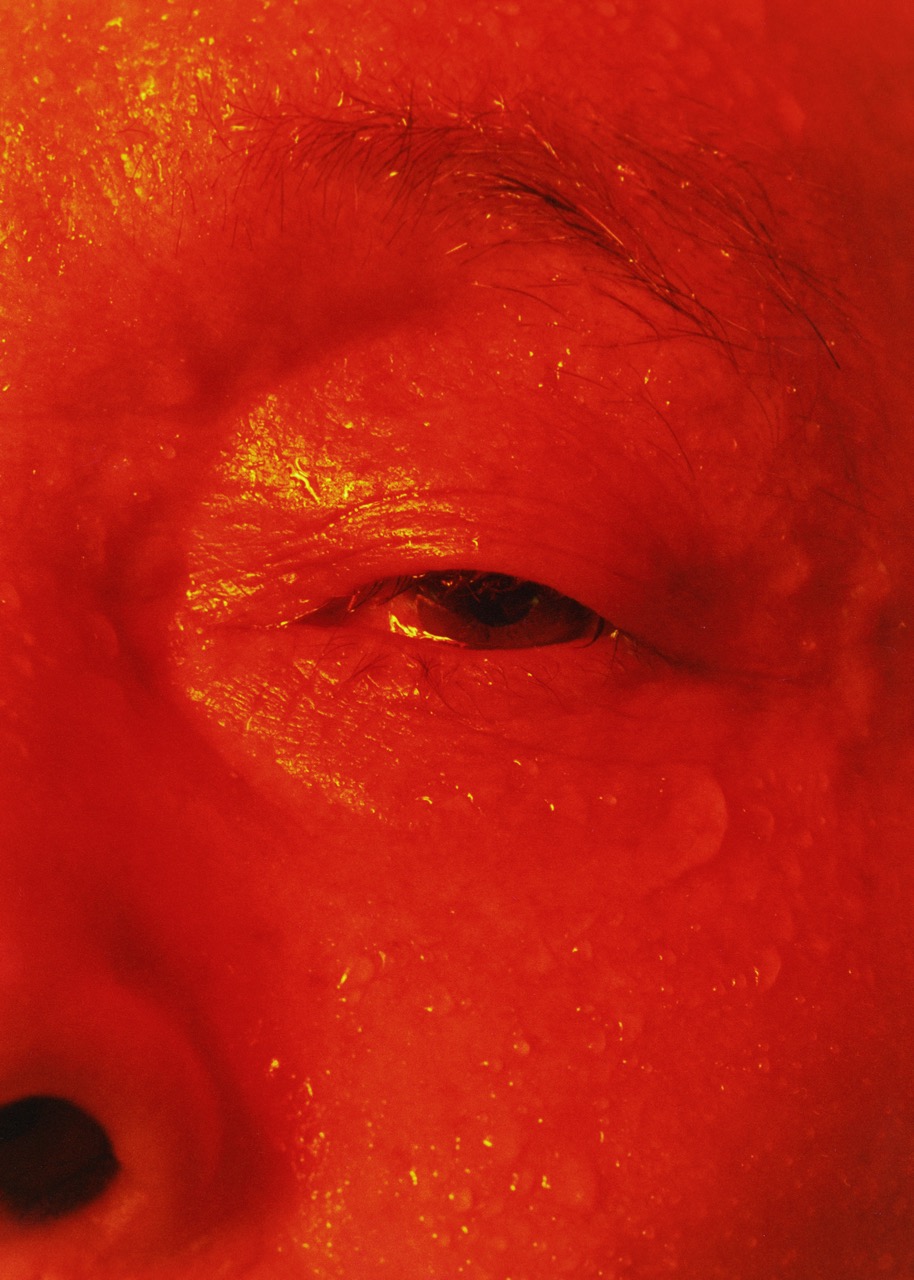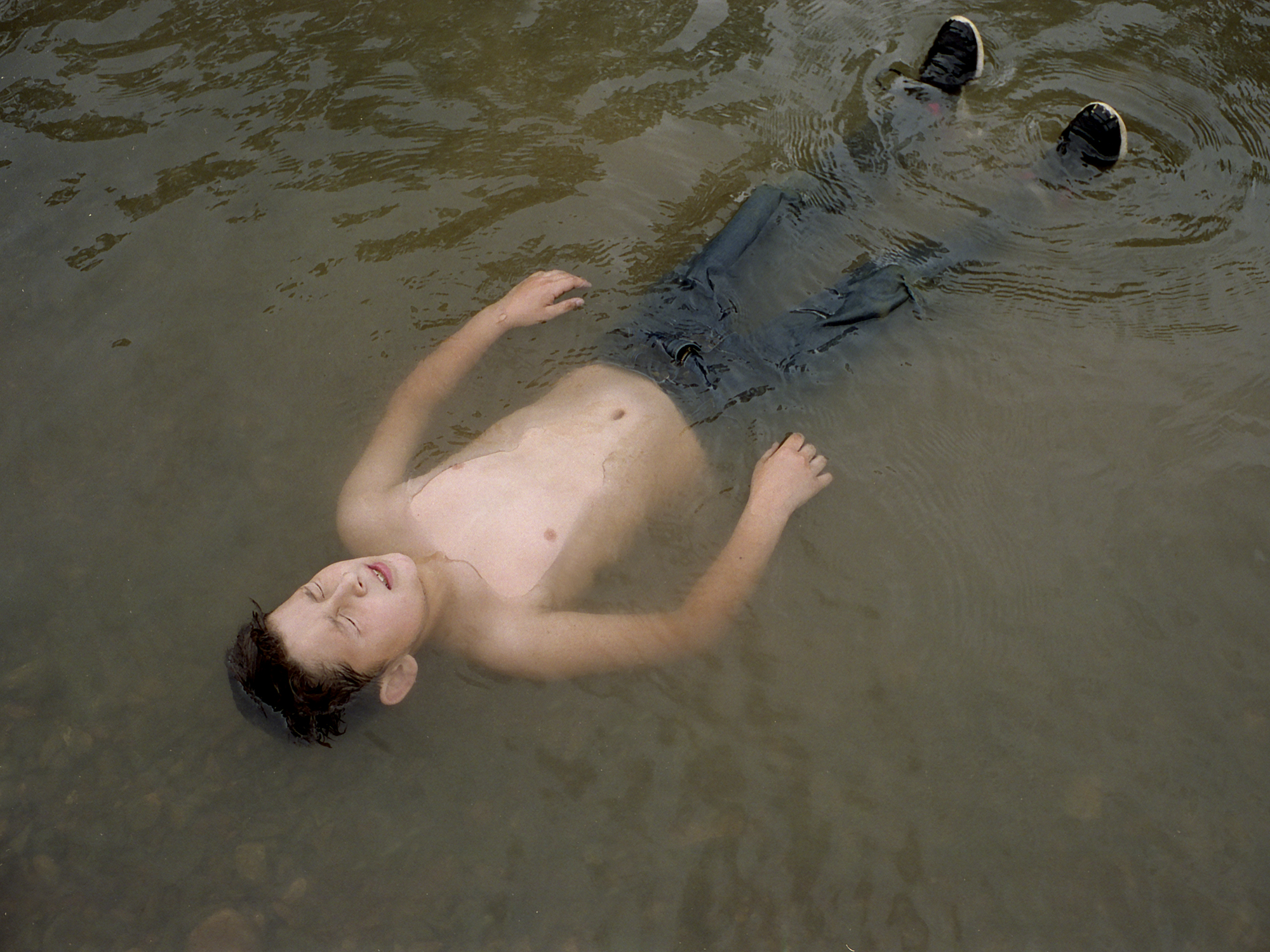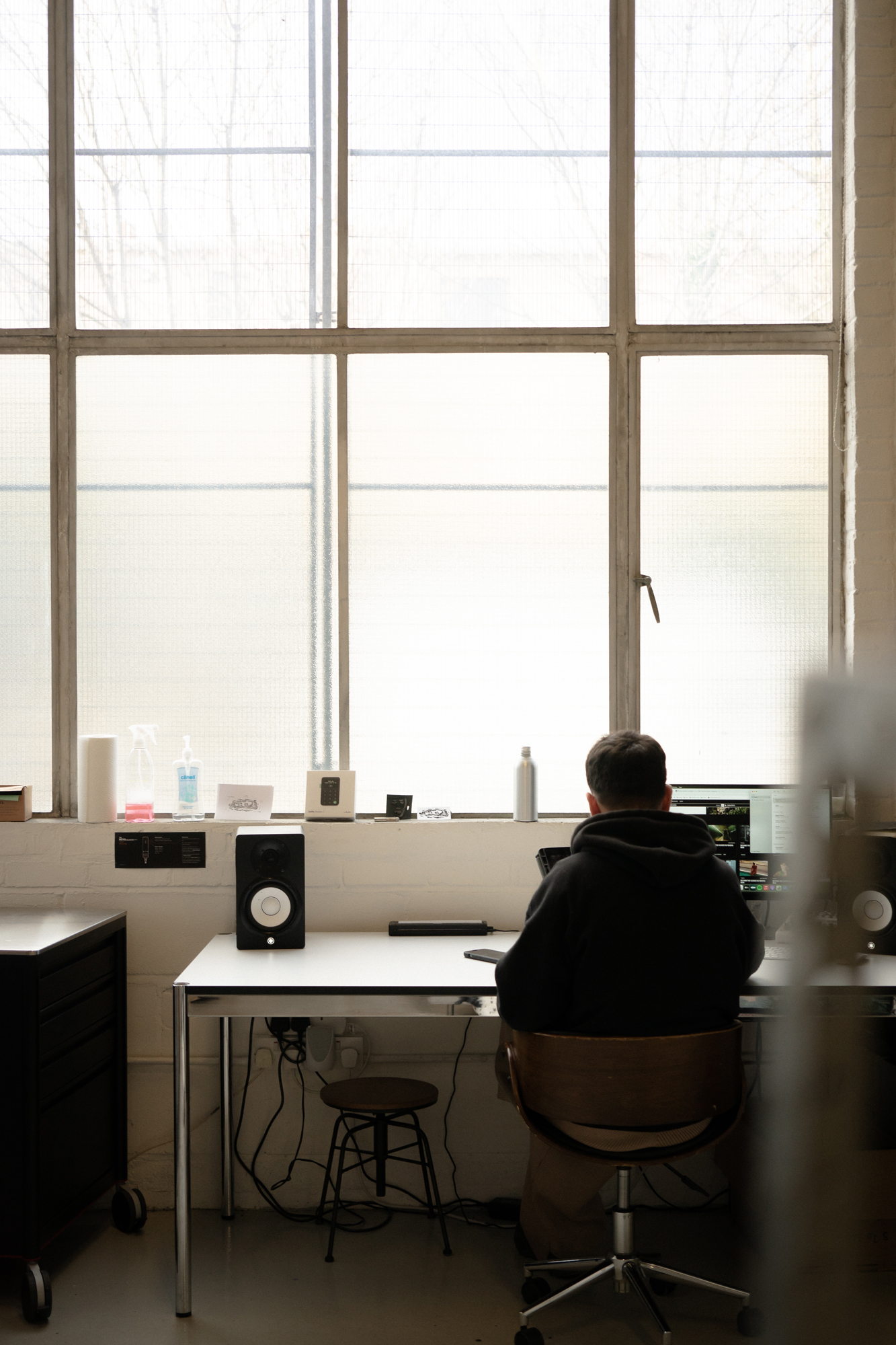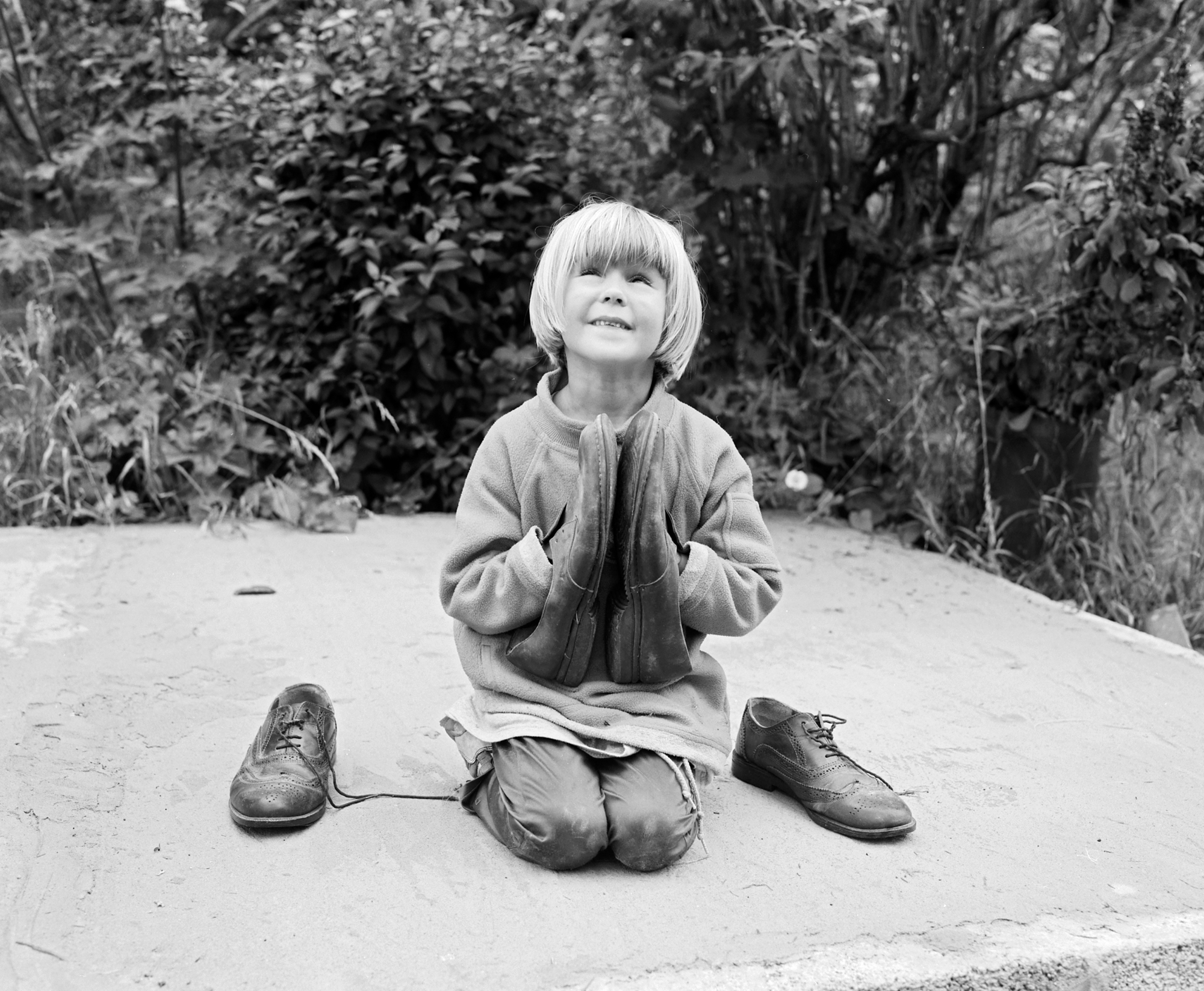The Victory Arch and its accompanying parade ground was opened on the 8th of the 8th, 1988 in Baghdad. It was commissioned by Saddam Hussein to commemorate the victory of Iraq over Iran although production began in Britain three years before the supposed victory. Based directly from casts of Saddam’s own arms, hands and thumb prints, he boasted of how he’d melted down the captured tanks of his enemies for the statue. The ground beneath is paved with 5,000 helmets taken from dead Iranians.
Documentary filmmaker, Joe Preston studied fine art and in his practise is interested in the boundaries of traditional documentary. He works in photography and film mainly but also writing occasionally. He recently completed a photography project about the membership of the two main political parties. He is currently finishing the edit of the Victory Arch film.
JT: How did this documentary / project come about?
JP: The idea for this piece came about when I first started university. I read a book about Sadam Hussein that was written before the Iraq war. I went through an interesting phase of reading books that were out of date by the time i’d read them. I guess i had this idea that i was interested in the fact that we understand events retrospectively, but it’s actually very hard to know what people genuinely thought before events like this had taken place.
In this specific book there was a mention of the Victory Arch, a monument commissioned by Hussein to commemorate the Iran–Iraq War. The Arch was designed by Iraq’s leading sculptor and engineered in the humble town of Basingstoke in the UK. I was on a train to Edinburgh at the time and I remember sitting there trying to piece Basingstoke and Baghdad together. I just thought it was a really crazy idea that Basingstoke and Baghdad were connected. It was like a pub quiz question, what connects Basingstoke to Baghdad? Ah The Victory Arch. It just seemed really absurd, this tiny, sleepy town in England had Saddam Hussein’s finger fingerprints all over it. It was then that I knew i wanted to research this topic further and with me just starting a degree in fine art, i knew this could turn into a future project.

JT: Where did you begin?
JP: I started with a book called Republic Of Fear which is a really famous book about baathist Iraq. It was written by Kanan Makiya and discusses in detail the rise of the ideology of the Baath party, it’s coming to power in Iraq in the 1960s, and the ways in which it has become a regime of totalitarian rule and institutionalised violence. This led me onto a book called The Monument, a book that focused on Baathist Architecture. It mentions the Victory Arch in great detail which then led me onto Basingstoke and a really famous Foundry called The Morris Singer Art Foundry. It’s one of the oldest foundries in Britain and well known for engineering the majority of Henry Moore and Barbara Hepworth. They created huge gates within Jordan and China and even the lions on Trafalgar Square were made there.
During my research I managed to track down the only remaining member of the Foundry that worked on the Arch. His name was David Vallance and he kindly spoke to me on the phone a couple of times before i finally got the chance to meet him. Although there’s never been much research into the Arch, it’s been quoted on numerous occasions that the monument is made of melted down tanks, a question i asked Vallance early on and to one in which he promptly replied “Tanks are not made from bronze”.
JT: How practical did you see the documentary being when you first set out and what did you imagine the film to be?
JP: I never knew, i’d never made a film properly and i just knew i had this great story and i didn’t know how i could sew it together, i think i naively thought that if the story is good enough then it’d come together itself, which i couldn’t make happen, it didn’t work for me. I had to really figure it out as it just became this mess of fun facts about a statue. It took years to even get to this point. At first i had this image in my head that i’d make this film that would have no voice over and i would make it look like the beginning of Under The Skin by Jonathan Glazer. I had this idea that i’d make this alien film with dark visuals and i was quick to learn that actually that was impossible, I had none of the skills to produce something like this. There was no real thought to what the story was, or what I would say.
It was an idea that I kept in the back of my head for years and every now and then when a university project ended, it would be what I go back to before starting something new. As time went on, it gradually came together. When I was away in Norway, there was one week where it didn’t stop raining all week. It was Easter and everyone was away except me because I couldn’t afford it. I just sat in my flat in my dressing gown and put a really rough cut of this film together. It took years to come up with the full idea and what i wanted it to be as the film i had in mind in first year would have been poor and a waste of a great story.

JT: In the initial film I saw your interview with David Vallance, one of the many engineers that helped build the monument. He mentions how there was eventually missing payments from Hussein. What was his attitude to the job now?
JP: That’s right, they missed monthly payments of 300,000 or something. Don’t quote me on that but they had regular payments and they missed the last one. To David, it was just another job. They built statues for leaders all over the world and at that point Saddam Hussein was our ally. We were supporting him because he was fighting a war with Iran. I can always tell that he thinks i’m fishing for a story and you can feel him tensing up when i’m around. He understands it looks bad but it’s obviously not his fault, so I have a lot of sympathy for him.
JT: How did David react to the film?
JP: He threatened to sue me at one point actually. When I finished my first edit and at that point what i thought would be the final edit over to him, he got back in touch shortly after and said something along the lines of “I’m glad you’ve finished this film for your degree, however i do not approve of this being shown anywhere else and i would not like it to be shown anymore. This is the end of it otherwise I’ll sue”. Luckily there’s a policy of reasonable consent whereby if you perform an interview with somebody and they agree to it, then it’s assumed they’re not just interviewing you for fun, they know full well it’s being recorded for something and therefore it can be used.
I hadn’t seen him in over four months, he really wasn’t happy with me. He’s also very hard to get hold of. I rang him up every three weeks for about six months and after a while he agreed to meet me again. I travelled down to interview him and after an hour he told me he wanted to get off. I asked him to show me through the photo albums which document the building of the monument and he declined. He luckily gave me them about a year ago and this is when i got the chance to scan them in and use them as archival footage for the film. That’s the thing, he’s given me them before but for some reason this time he didn’t want to. Whatever he feels that day. He’s a really friendly bloke and at the end of the day, he didn’t have to help me. So i hugely respect him for taking any time to speak to me.

JT: So in 2019 you went to Baghdad to meet the Arch itself. How did you feel when you got to see the arch? Was there any emotion.This project you’ve been working on for years and you finally saw it with your own eyes.
JP: Yes, it felt like a fait, I knew one day that I would have to go there. The first time I saw it I was driving past in a cab and the sun was setting behind it and I just saw the silhouette. My breath genuinely stopped for a second. Meeting the arch properly was probably the most stressful experience of my life. Basically i didn’t realise that the victory arch is in the green zone and although aware of that, i didn’t realise the level of security in this specific part – It’s probably the highest security in the whole of Baghdad.
My fixer told me afterwards that the BBC had been trying to get in for 3 weeks and they had still not got in. They spent a week camped out and were just simply denied filming permits. I filmed lots of stuff everyday but this was essentially what i came out here for. On the first day my fixer told me getting in was going to be very difficult, especially with no accreditation except a letter from Then There Was Us. I had no press cards or international journalist accreditation, i had nothing. Every morning i’d wake up and my fixer would agree to taking me to the victory arch. I don’t think he was telling me exactly what was happening as he was worried. He’d tell me he’d spoken to his contact and that it’d be fine to visit today. It would then get to the afternoon and he’d tell me it’d be tomorrow now.
It got to the last day of my trip and my fixer was adamant he’d get me in. After making a million phone calls, he said that we were on for ten o’clock that morning. Our time got pushed back to eleven o’clock and after getting to the wrong gate we got to the right one where they told us that they were shut from now until 3 o’clock. We killed some time and by the time we’d got through the majority of security, it was 6 o’clock on the last day. It was Ramadan and the sun was setting at around 7. I had an hour and although not a lot of time, i knew it had to be done. We were next to the arch when some soldiers pulled us over. This happened a lot. They would pull us over to check paperwork. It usually took five minutes and this was 40 minutes later. We were probably 40 yards from the victory arch and i could see it, but i couldn’t film anything. I imagined getting through when it was dark and thinking “i’ve spent 4 years and my entire life savings and i’m going to get within 20 yards of the victory arch and not get a single shot”. I had already accepted that.
The soldiers eventually allowed us through and i charged out of the taxi and i knew i had 30 minutes left. After 20 minutes my fixer asked if i had finished filming and i knew i had 10 more minutes of light so i wanted to use them wisely. He replied with “you’ve got 3 minutes”. He kept repeating it and eventually he shouted “you’ve got three minutes until the soldiers find out you don’t work for the Iraqi parliament, so get what you can”. He told them i was a contractor for the Iraqi government and they were currently on the phone to their commander. Three minutes later he grabbed me and my camera and threw us in the back of the cab, we then quickly sped away. It was the most stressful and exhilarating thing of my entire life.
JT: When did you realise when you were going to go to Iraq and how did you achieve that?
JP: I was obsessed with the middle east and i was obsessed with the fact all the photographers and filmmakers that i like, what they got to do is travel all of the world and i thought that was the dream. I think part of the reason I wanted to make this film was that when I was 19 I wondered whether I could go to iraq.
I was reading a lot about it and got really obsessed with Iraq as a country and found it historically fascinating. I’d read a lot about it and thought i’d like to see it in real life, but i wasn’t sure know if I was subconsciously trying to give myself a reason to go.
When i finally decided i wanted to go it took years of planning. I tried to get a visa 4 times before i finally got the go ahead. At one point I even set up my own company as there’s an old trick whereby you set yourself up as a company so ‘Joe Preston LTD’ and make a friend the director. Then get the friend to sign your accreditations off on your behalf, so its not u signing ur own accreditations away. That went horribly wrong when I started to get letters about corporation tax. It was scary, I really thought I was going to go to prison. After this I asked the University to write me off on a student visa, but they weren’t up for sending a young student to a country that has a high security risk. I got that desperate i attempted to write my own letters but this didn’t work in the slightest. After that it occurred to me that you guys run a magazine that stands for real stories and documentary projects and this is when we met and i got the letter from you. I guess you were the only people brave enough and kind enough to send me off to get what i needed. Everyone was scared of sending me, but I knew I’d be all right. I wouldn’t have gone if I didn’t think I would be.
The week before I went Shia Militias fired rockets at the American embassy in Baghdad and the American government withdrew all its American staff from Iraq. They then issued a warning stating that they’d kidnap and execute any Americans found on the streets of Baghdad. My dad who was cool for ages got kind of worried at this point. My parents didn’t want me to go. Funnily enough, the week after I arrived back, I got a phone call from the embassy stating that my visa was ready for collection. After years of trying, I ended up with two visas within a month.

